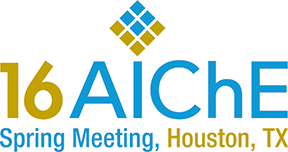

A well-established design concept for management systems is the continual improvement life cycle involving the steps: Plan-Do-Check-Act (PDCA). Similar to standards for managing quality, environmental, occupational health and safety, and security, models for effective process safety management (PSM) systems also utilize the PDCA cycle.
At a higher level, the PSM elements of Process Safety Information, Process Hazard Analysis, Operating Procedures and Training address planning activities in the “Plan” step; while various other elements such Employee Participation, Management of Change, and Emergency Response address operational activities in the “Do” step. Mechanical Integrity, Incident Investigation, and Compliance Audits address verification in the “Check” step; while some of these same elements contain sub-systems for managing actions in the “Act” step.
Following the plan, do, and check steps, yet failing to follow up on the actions generated for improvement can lead to gaps and inefficiencies in terms of process safety performance, and hence higher risks. Besides lost opportunities for risk reduction, open actions can also result in legal “smoking guns”, as well-intended, but unfulfilled, actions that could be judged as willful inactions.
Failure to properly close out action items from process hazard analyses, equipment inspections and tests, incident investigations, and compliance audits on time, or worse, failure to close them at all, present the largest concern. As a result, improvements can be missed and many others only offer partial, or at best temporary, solutions to identified deficiencies in the PSM system or the engineering system for which PSM is being applied to control risks.
Root cause analysis is necessary for effective learning. Without gaining a deep understanding of the cause(s) for why a deficiency exists or why an incident occurred, there can be no meaningful corrective or preventive action. Instead, only a correction as a quick fix is possible, which results in a higher likelihood (and hence risk) that the same or similar deficiency or incident will be repeated.
This paper will focus on the misunderstandings about and mistreatments of actions, and will present a case for re-assessing an organization’s action tracking system. Specifically, the paper will present ten examples to demonstrate the differences between: (1) correction to eliminate deficiencies; (2) corrective action to eliminate the cause of an identified deficiency in order to prevent recurrence, and (3) preventive action to eliminate the cause of potential deficiencies in order to prevent occurrence. These examples will relate to several elements of a PSM system where improperly managing actions have led to process safety incidents. Further, these examples will show how human factors are most often the prevalent root cause(s). That is, human errors causing deficiencies associated with designing and/or implementing either the management system or the engineered process system, if not properly identified and eliminated, represent a potential multi-fold increase in the risk of process safety incidents.
This paper will draw upon the authors’ extensive experience in conducting process hazard analyses, PSM system audits, and incident investigations, as well as expertise in designing robust and vibrant systems for managing corrective and preventive actions.
